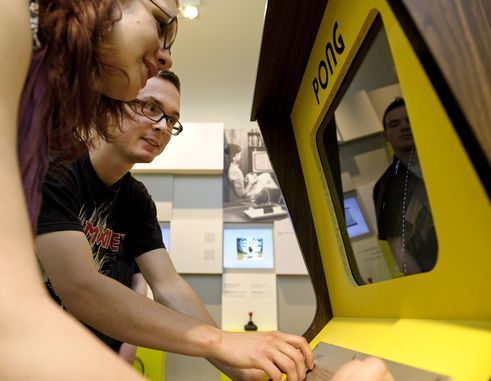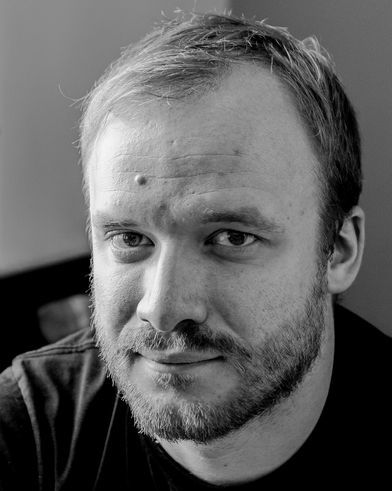Computer Games Collection
A frontrunner in preservation

Germany is set to have the largest collection of computer games in the world. Over 50,000 titles of individual collections are to be documented with the support of government funding, and then pooled together.
Three project partners have joined forces to accomplish this goal: Peter Tscherne (PT) is managing director of the Stiftung Digitale Spielekultur (Foundation for Digital Games Culture) that is organising and coordinating the project. Andreas Lange (AL) is director of Berlin’s Computerspielmuseum (Computer Game Museum) that is contributing its games collection to the initiative. Sebastian Möring (SM) is media scientist and coordinator of the Digital Games Research Centre at the University of Potsdam that is also contributing a collection.
Gentlemen, how did the idea to start a collection get underway?
Andreas Lange (AL): The Unterhaltungssoftware Selbstkontrolle (USK) (Organisation for Entertainment Software Self-regulation), the Computerspielmuseum and the University of Potsdam realised that we each have substantial collections of original titles. These individual collections could be put together relatively easily to create a very large, and indeed relevant collection.
Peter Tscherne (PT): The prime aim of our foundation is, among other things, to show the potential of digital games for society. This also includes the collections of our partners that will be made accessible to the public.
But why should computer games be in a museum?
Sebastian Möring (SM): As a media and cultural scientist I don’t see why games should not rank on the same level as films, literature or music, particularly because a large sector of young people grow up with this media. Whether we want it or not: their view of the world is shaped by these experiences. And I also believe that games have a significant impact on how our cultural life will develop in the future.
PT: 50 percent of all German people play computer games. This alone shows the importance of this medium.
AL: We have just understood the huge impact digital technologies are having on our society and on our culture. Seen historically, games were the first application to allow the non-specialist to use the computer. This is something that will continue in the future as well: every child’s first contact with a computer will be in the form of a game.
 Pongautomat (Atari, 1972) at the Computerpielemuseum Berlin
| Photo: Jörg Metzner, © Computerspielemuseum
Computer games are digital. Why do they have to be collected in physical form?
Pongautomat (Atari, 1972) at the Computerpielemuseum Berlin
| Photo: Jörg Metzner, © Computerspielemuseum
Computer games are digital. Why do they have to be collected in physical form?
PT: We have film collections, film archives and museums as well. It would, of course, also be possible to show and view these films digitally. But here again it is so much better to have these works as originals.
AL: Our exhibits are in physical form. This represents the first three to four decades of commercial computer game culture that goes back to the 1950’s. We have nothing else from this period. And this is something we are familiar with from other cultural fields: it is this initial period that is so important for future generations, enabling them to understand how everything got started. And these physical examples of original data carriers distinguish them from other large games collections. The Internet Archive, for instance, is a library with thousands of historic games; but it does not have original copies, so there is no licencing basis. Contrary to this, with every physical copy in our collection you have the right to play the game as well.
Does that mean the public can play all of the games in the collection?
AL: That is what we want to achieve: good, straightforward access. We are, however, aware of the fact that clarification is still required in this respect, particularly regarding the legal situation.
But there are now so many games that are no longer provided on data carriers. How are you going to archive these?
AL: We have to make a further distinction here: downloadable games are simply downloaded. It becomes difficult when the entire game is on a server and the gamer simply logs in. Preserving games of this kind is, of course, a major, new challenge. As a collector, as a preserver, I have nothing tangible. Personally, I can only see solutions being developed together with the Games industry.
SM: This is one of the fundamental problems with the medium. With a multiplayer online game such as EVE online you can provide the code or the programme. But it is hard to collect the gaming activities created by thousands of users in Eve Online over the past decade. And that is another typical characteristic of the medium.
AL: These are issues that will also affect Facebook and other digitally supported spheres of life. In this respect, in our role as games preserver we are rather like an avant-garde frontrunner, and the first to address such issues.

The title of the collection has the word “international“ in it. Is it really, or does the collection not just focus on Germany?
AL: In Germany, games are submitted to the USK for age rating. With this archive there is, of course, a German focus in the collection. However, many of the games submitted to the USK are produced abroad. These are Japanese, American games, possibly in a German location. We have to understand that it is very difficult to predict the questions future generations will put to the history of the medium. It is for this reason we want to provide a broad basis.
PT: Yes, exactly. We are on the same floor as the USK. I frequently go to the archive and I think that the share of international games over recent years was at least 60 to 80 percent. This underscores that there is no restriction to German games.
How expensive is the project going to be?
PT: The German Bundestag has promised approximately 140,000 euros in funds for creating the database, and this is going to take about a year. The Bundestag has also agreed to provide a further 250,000 euros as from 2018 to help bring the collections together. When it comes to actually setting up the collection in physical form, these efforts will involve significantly higher costs and will probably commence in 2019.
Is this commitment of public funds a signal of social recognition?
AL: It is indeed. As far as I know, no comparable decision has been adopted on an international scale.
PT: The decision to provide funding is a clear signal. At the same time, however, we read that in Poland support funds of 20 million euros are flowing into the industry, without any great fuss being made. This is definitely not the case in Germany. Compared with England, France, Poland and Canada the support here is just peanuts.
SM: One can also recognise social recognition through the extent in which computer games are played and the many different ways they are used. On Youtube Let‘s Plays are a big phenomenon. Here gamers record themselves while playing and give a commentary on the gameplay. They make contact with others to discuss the computer game – this is a form of social recognition that differs to recognition at a political level.